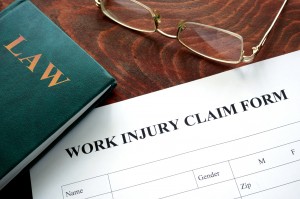Sign Up Today!
-
Latest News
- Blick Law Firm Works Closely with Tampa’s Chiropractic and Acupuncture Clinic
- Blick Law Firm Brings Legal Expertise and Christian Values to Tampa
- What can a personal injury attorney do for you?
- The Importance of a Real Estate Attorney in a New Transaction
- Over 150 New Florida Laws Take Effect this Month
- Law Change Protects Florida Patients From Balance Billing
- Fatal Alligator Attack at Disney World Orlando Could Mean Legal Trouble
- Florida Gun Laws Under Fire After Orlando Attacks
- Prospect of Medical Marijuana in Florida Creates Buzz
- Florida’s Death Penalty System Subject to Further Questioning
- Summer Driving Safety Tips
- Florida Supreme Court Votes to Maintain Reasonableness in Workers’ Compensation Law
Tags
abogado cristiano abogado de lesiones personales abogado en tampa abogados abogados en tampa abogados real estate abogados tampa accident attorney accident attorneys attorney for the defense attorneys in tampa auto accident bancarotta en tampa bankruptcy attorney blick law firm carrollwood carrollwood attorney carrollwood businesses carrollwood law firm carrollwood real estate christian attorney christian law association christian law firm christian lawyer christian lawyers christian lawyers association christian lawyer tampa driving under the influence helping the hurting michael c blickensderfer military lawyer military lawyers minute with mike personal injury personal injury attorney personal injury attorneys personal injury lawyer personal injury lawyers real estate law tampa attorney tampa law firm tampa personal injury attorney tampa real estate attorney veterans veterans lawyer
Monthly Archives: May 2016
Florida’s Death Penalty System Subject to Further Questioning
 Florida’s capital punishment system is currently facing its greatest uncertainty since the 1970s. In early May, a Florida Supreme Court judge questioned the constitutionality of the state’s new death penalty law. The law went on trial in front of the Florida Supreme Court, as a death row inmate who was sentenced to execution by the state asked for a life sentence. While the constitutionality of the law is in question, the future for 390 death row inmates remains uncertain.
Florida’s capital punishment system is currently facing its greatest uncertainty since the 1970s. In early May, a Florida Supreme Court judge questioned the constitutionality of the state’s new death penalty law. The law went on trial in front of the Florida Supreme Court, as a death row inmate who was sentenced to execution by the state asked for a life sentence. While the constitutionality of the law is in question, the future for 390 death row inmates remains uncertain.
Florida’s death sentencing system was ruled unconstitutional by the US Supreme Court in January, because it gave too little power to juries in capital cases. The case heard by the federal Supreme Court was that of Timothy Lee Hurst, who was sentenced to death for the 1998 murder of Cynthia Harrison. Though the court did not invalidate Hurst’s death penalty itself, his attorney argued that Hurst should instead be sentenced to life, due to the previous law’s defective nature.
“You can’t separate the punishment from the procedure,” Hurst’s attorney, David Davis, said. “You can’t have one without the other.”
Carine Mitz, Florida Assistant Attorney General, disagreed with Davis. “If the (Hurst) case were to be remanded (back to a trial court), it would have to be under the new statute,” she said. “I still don’t think we have a problem.”
Justice Barbara Pariente, who is often among the court’s five-person majority, sees the biggest problem with the case. Pariente takes issue with the fact that the new law could violate the Eighth Amendment’s restriction against cruel and unusual punishment, because it requires the existence of just one of 16 aggravating factors that make a defendant eligible for a death sentence under Florida law.
“If only one aggravator is needed in this state to put someone to death, we have a serious Eighth Amendment problem,” Justice Pariente said. “If we want a death penalty in Florida, we need it to be constitutional.”
The state does not agree with Pariente’s opinion. “I don’t think that the new statute is as detrimental as some might present,” Mitz said. “I probably should have said it’s actually better.”
Florida Justice Charles Canady, a death penalty supporter who typically finds himself in the court’s minority, notes that the court cited two aggravating factors in the Hurst case, recommending his execution in a 7-5 vote.
Pariente was concerned about the Hurst case long before the US Supreme Court intervened. In 2014, when the court upheld Hurst’s death sentence in a 4-3 decision, justices Jorge Labarga and James Perry joined Pariente in her partial dissent.
In 2014, Pariente wrote, “I dissent from the majority’s affirmance of Hurst’s death sentence because there is no unanimous finding by the jury that any of the applicable aggravators apply.” She continued, “The absence of juror unanimity in the fact-finding necessary to impose the death penalty remains, in my view, an independent violation of Florida’s constitutional right to trial by jury.”
According to Attorney General Pam Bondi, there are currently 43 death sentences that are eligible to be reduced to life in Florida. The Florida Supreme Court’s consequent steps regarding the death penalty system will determine the fate of those 43 inmates. For more information regarding Florida’s death penalty, [Click Here].
Posted in Blog
Leave a comment
Summer Driving Safety Tips
 More fatal accidents are reported in the summer months, as vacations and road trips cause greater road congestion and road work leads to more obstacles and detours. Several other factors add to the danger of summer driving. Keep yourself and others out of harm’s way by minding the following safety tips before hitting the road this summer.
More fatal accidents are reported in the summer months, as vacations and road trips cause greater road congestion and road work leads to more obstacles and detours. Several other factors add to the danger of summer driving. Keep yourself and others out of harm’s way by minding the following safety tips before hitting the road this summer.
Check your tires.
Checking the air pressure and overall condition of your tires will help you save time and money, and better protect you from unexpected breakdowns and accidents. While keeping your tire pressure at the manufacturer’s recommended level increases fuel efficiency, it is also important to check your tire tread. The tread should not be less than 1/8 of an inch, especially during the rainy summer months when traction is crucial to road safety.
Pack safely.
Road trips and vacations are often the most exciting part of summer, but overloading your vehicle can lead to unnecessary risk and damage. Your owner’s manual likely contains information about your vehicle’s maximum payload capacity. Adhere to these guidelines to avoid potential breakdowns and damages. Also ensure that the driver can see out of all windows before embarking on your summer journey.
Manage glare and heat.
Store a pair of sunglasses in your vehicle so you are always prepared for the bright Florida sun. Additionally, using a sunshield can help reduce your vehicle’s interior heat. Always remember it is unsafe to leave a child or pet unattended in a vehicle, as they are much more susceptible to overheating and dehydration.
Keep summer allergies in check.
Dry or irritated eyes, frequent sneezing, congestion, and exhaustion, all common allergy symptoms, can pose a serious threat to your safety and that of your passengers. Most over the counter allergy medications cause drowsiness, so talk to your doctor or pharmacist about medications that are safe to take before driving. You can also proactively prepare your vehicle for allergy season by keeping windows closed, regularly changing air filters, and frequently washing floor mats and other interior surfaces.
Exercise extreme caution during summer storms.
Roads are especially slippery during the first thirty minutes of a storm, or even light shower, as the rainwater mixes with oil and other substances covering the road. Ensure that your wiper blades are in working order and remember to keep your speed in check if you are on the road during one of Florida’s many summer storms.
Share the road.
Summer always means more motorcycles, bicycles, and pedestrians on the road. Scan the road in front of, behind, and to the side of  your vehicle before switching lanes or turning to prevent collisions. AARP Smart Driver recommends increasing your following distance to four seconds or more when following a motorcycle, and cautions against ever sharing a lane with motorcycles.
your vehicle before switching lanes or turning to prevent collisions. AARP Smart Driver recommends increasing your following distance to four seconds or more when following a motorcycle, and cautions against ever sharing a lane with motorcycles.
Pay special attention to pedestrian crosswalks, as they always have the right of way.
Blick Law Firm is happy to meet your legal needs this summer and all year round. Call us now at 888-973-2776 for a free consultation with one of our trusted attorneys!
Posted in Blog
Leave a comment
Florida Supreme Court Votes to Maintain Reasonableness in Workers’ Compensation Law
 The Florida Supreme Court recently ruled on a case involving limiting attorney’s fees in workers’ compensation cases. The hearing resulted in a 5-2 ruling in favor of Florida’s injured workers.
The Florida Supreme Court recently ruled on a case involving limiting attorney’s fees in workers’ compensation cases. The hearing resulted in a 5-2 ruling in favor of Florida’s injured workers.
Businesses argued that attorney fees in workers’ compensation cases both increase the cost of workers’ compensation insurance and jeopardize the state’s overall economic success; as a result, some Florida businesses were pushing for a law mandating lower fees. The court’s decision to strike down the law means that Florida legislators will have to mediate between Republic-aligned businesses and left-leaning law firms, who sit on polar opposite sides of the issue. Because 2016 is an election year and businesses and law firms are major contributors to political campaigns, lawmakers are expected to hold a special session regarding the issue.
The case in question was that of Marvin Castellanos, a Miami man and employee of Next Door Co. After injuring his head, neck, and shoulders in a work-related accident, Castellanos faced an aggressive defense by Next Door Co. and was ultimately awarded $822.70. Castellanos’ lawyer sought a fee of $36,817.50 for 107 hours of work on the case. He received $164.54.
Florida Supreme Court Justice Barbara Pariente wrote for the majority, stating that the law violates workers’ due process rights under the state and the United States Constitution and would do away with any notion of reasonableness. “Without the likelihood of an adequate attorney’s fee award, there is little disincentive for a carrier to deny benefits or to raise multiple defenses, as was done here,” Pariente wrote. “Virtually since its inception, the right of a claimant to obtain a reasonable prevailing party attorney’s fee has been central to the workers’ compensation law.”
Ricky Polston and Charles Candy, the courts two conservative members, dissented from the majority opinion. Candy said the law involves a “policy determination,” linking he amount of benefits obtained by workers to the amount of attorney’s fees awarded. Candy wrote the following: “The definition assumed by the majority categorically precludes the legislative policy requiring a reasonable relationship between the amount of a fee award and the amount of the recovery obtained by the efforts of the attorney…there is no basis in our precedents or federal law for declaring it unconstitutional.”
 Kevin McCarty runs the Office of Insurance Regulation, which regulates workers’ compensation rates in Florida. He said that until the Legislature decides otherwise, his office will base attorney’s fees on the “reasonable” standard defined in the 2008 case, Murray vs. Mariner Health.
Kevin McCarty runs the Office of Insurance Regulation, which regulates workers’ compensation rates in Florida. He said that until the Legislature decides otherwise, his office will base attorney’s fees on the “reasonable” standard defined in the 2008 case, Murray vs. Mariner Health.
“Limiting attorney’s fees has been an important factor in reducing workers’ compensation rates.” According to McCarty, “A legislative remedy will be required to prevent significant increases in rates, and we look forward to working with all parties affected to bring about a sensible solution.” For more information regarding the worker’s compensation law, [Click Here].
Posted in Blog
Leave a comment















